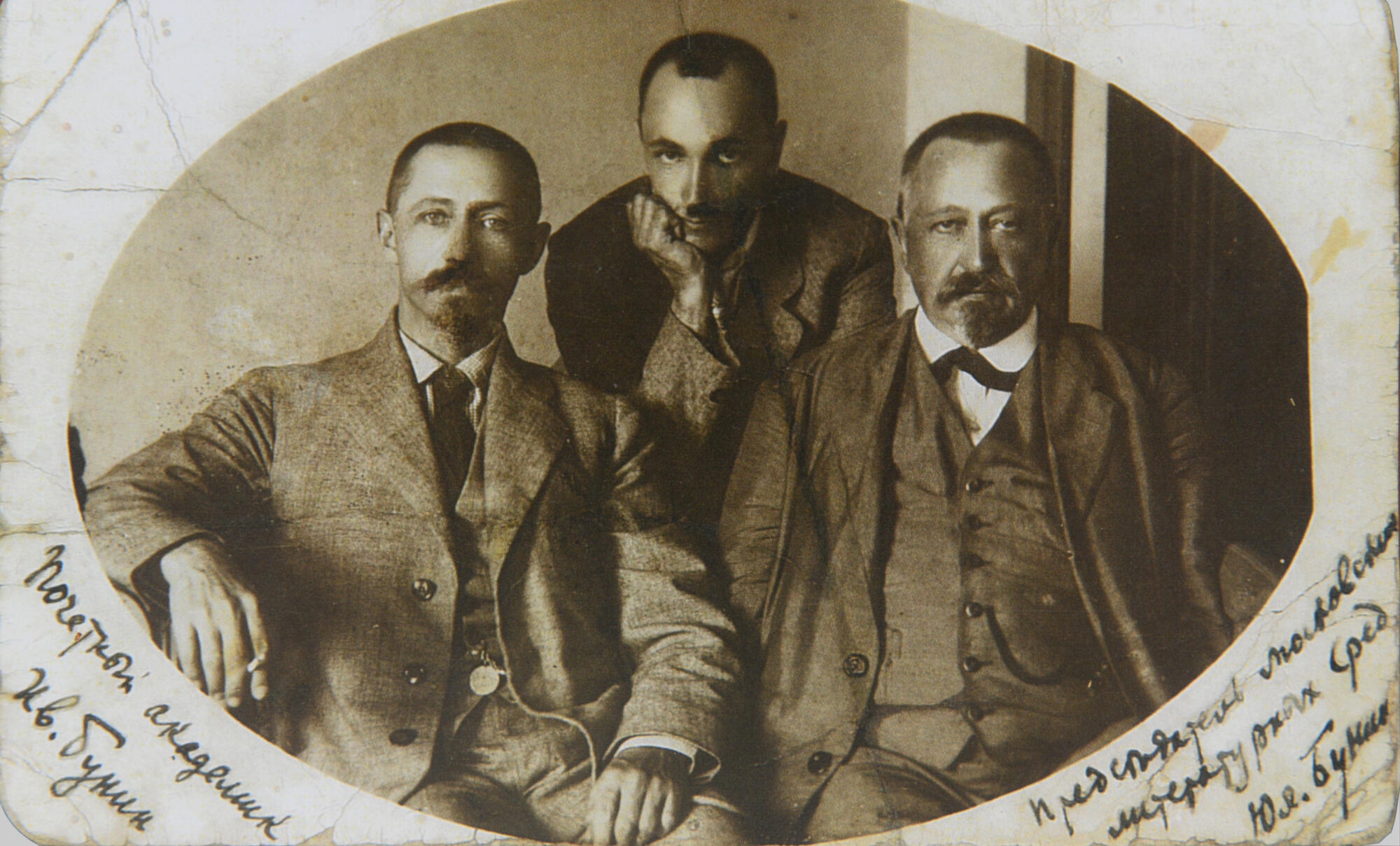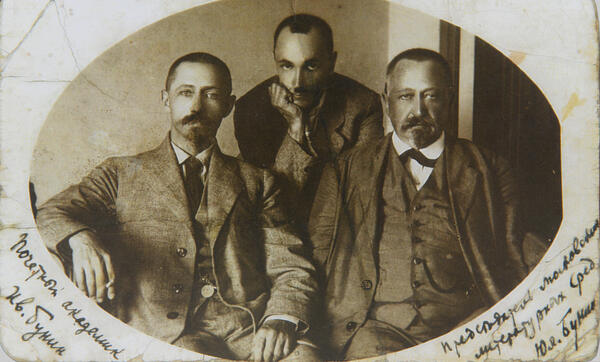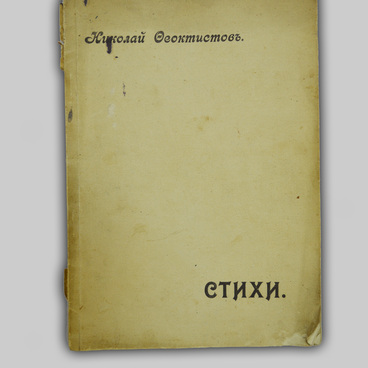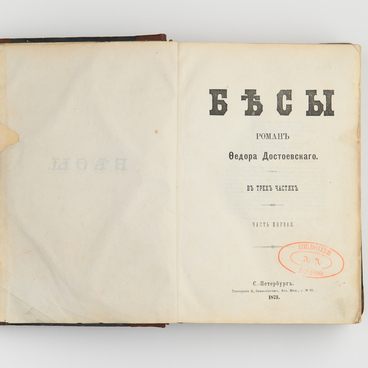On the photograph we can see: Georgy VyAtkin in the middle, Ivan Bunin on the left, and his brother Yuli on the right. Siberian author Georgy Vyatkin took part in the meetings of the Moscow literary group Sreda (literally: Wednesday) where he met writer Ivan Bunin and belletrist Yuli Bunin. Later, Vyatkin was in correspondence with Ivan. The group members used to gather in private apartments, mostly in Nikolai Teleshov’s one.
Georgy Vyatkin was a Russian and Soviet prose writer, poet, playwright and publicist who lived between 1885 and 1938. He was a co-founder of contemporary Siberian literature. Born in Omsk, Vyatkin graduated from a teachers training college in Tomsk. In 1902, he got admitted to the Kazan Teachers Institute, but later was expelled as a politically unreliable person. Having returned to Tomsk, he worked in the “SibIrskaya Zhizn” (Siberian Life) newspaper. Over the years, Vyatkin lived in Tomsk, Omsk, and NovosIbirsk. He wrote poems, short stories, critical literary articles, theatrical and bibliographical reviews. Many of Vyatkin’s pieces appeared in Siberian and Moscow periodicals. He was acquainted and carried on a correspondence with many famous authors, not to mention IvAn BUnin. Maxim Gorky, Alexander Blok, and even French writer Romain /ro’men/ Rolland /rol’lan/.
During World War One, Vyatkin worked in healthcare units at the front line for more than two years. He rejected the October Revolution and joined the Socialist Revolutionary Party. After coming back to Omsk in summer 1918, he got engaged in many literary activities. In 1920, he was trialled by the Revolutionary Tribunal and disfranchised for three years. In 1926, moved to Novosibirsk where he worked in local magazines Sibir, Tovarishch and Sibirskiye Ogni. In 1930, got the job of a technical and supervising editor of Siberian Soviet Encyclopedia. In 1937, arrested by NKVD with regard to the case of the fake Labour-Peasant Party. Executed by shooting 8 January 1938. Exonerated in 1956. In the writer’s lifetime, seven poetry books and eight prose books were published. His works reflected both the populist traditions of the 1880s' “timelessness” and symbolist novelties.



